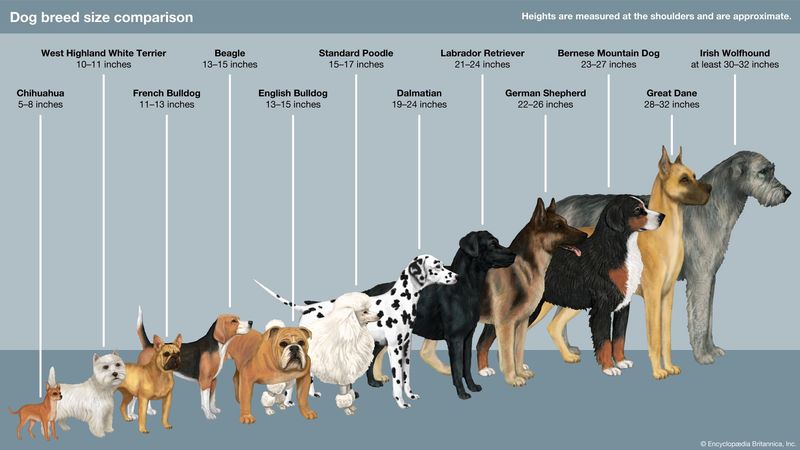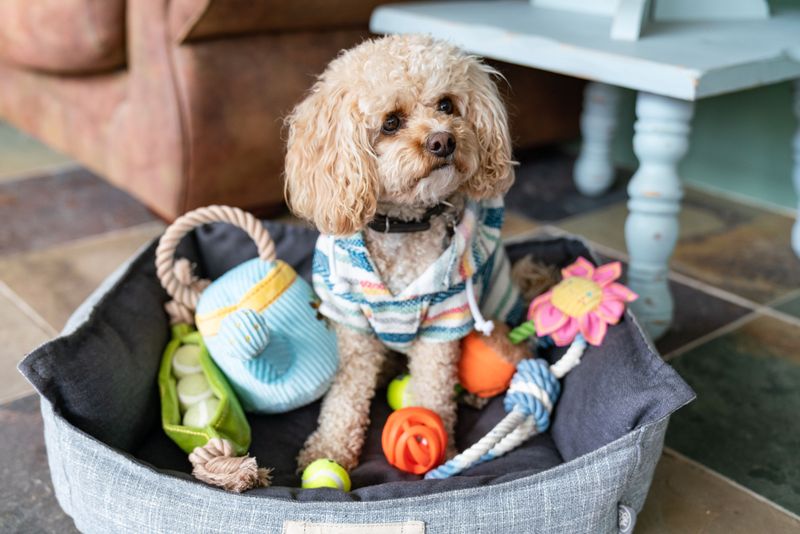Thinking about bringing a furry friend into your home through a breeder? There are important factors to weigh to ensure a happy and healthy addition to your family.
Breeder’s Reputation
It’s crucial to investigate the reputation of the breeder. A reputable breeder is typically transparent about their breeding practices and welcomes questions about health, lineage, and environment.
Check online reviews and ask for references from past clients. Visiting the breeder in person can offer insight into the conditions the puppies are raised in.
Ensure they are part of a recognized breeder association, which often mandates adherence to ethical breeding standards. A good reputation is a hallmark of responsible breeding.
Health Certifications
Ensuring that puppies have the necessary health certifications is vital. These documents confirm that the dog is free from genetic disorders and has received necessary vaccinations.
Always ask the breeder for health clearances of both the puppy and its parents. A responsible breeder will have no issues providing these.
This precaution helps avoid future health issues, potentially saving on medical expenses. It guarantees a healthy start for your new family member.
Breed-Specific Traits
Understanding breed-specific traits is pivotal when selecting a dog. Each breed possesses unique characteristics, from energy levels to grooming needs and temperament.
Consider how these traits align with your lifestyle and preferences. For instance, a high-energy breed may require more exercise and space than a more laid-back one.
Consult breed profiles and speak to experts to find the ideal match for your family. Knowing these traits ensures a harmonious relationship.
Puppy Socialization
Puppy socialization is an essential part of their development. Prioritize breeders who expose puppies to various environments, sounds, and interactions with people and animals.
This early exposure helps puppies grow into well-adjusted adults. Ask the breeder about their socialization practices and observe the puppies’ behavior during visits.
A well-socialized puppy adapts more easily to new environments and is typically more confident and friendly.
Cost of the Puppy
The cost of acquiring a puppy can vary significantly. Be prepared for the initial purchase price and ongoing expenses like food, vet visits, and grooming.
It’s essential to understand what the price includes, such as vaccinations, microchipping, and initial vet checks. Always clarify this with the breeder to avoid surprises.
Budgeting for a puppy ensures you can provide it with a comfortable and healthy lifestyle.
Breeder’s Experience
The breeder’s experience plays a significant role in raising healthy puppies. Experienced breeders have a better understanding of genetics, health issues, and proper care.
Inquire about their history and success in breeding specific dog breeds. Experienced breeders are more likely to produce healthy, well-adjusted puppies.
Their expertise often translates into valuable advice and support for new dog owners.
Contractual Agreement
Before purchasing a puppy, it’s important to understand the contractual agreement. A contract should detail the return policy, health guarantees, and responsibilities of both parties.
Read the fine print carefully and ask questions if needed. A transparent contract reflects a breeder’s commitment to the well-being of their puppies.
This legal assurance protects both the buyer and the seller, promoting responsible pet ownership.
Breeding Environment
The breeding environment is a crucial factor in a puppy’s wellbeing. A clean, spacious, and nurturing environment fosters healthy development.
Visiting the breeder’s facility can provide insights into the conditions the puppies are raised in. Look for signs of proper care, such as clean play areas and active, healthy puppies.
A positive environment indicates that the breeder prioritizes the health and happiness of their dogs.
Breeder’s Support
Post-purchase support from the breeder can make a significant difference. Reliable breeders offer guidance on training, health, and care long after the puppy goes home.
Ask about the support provided and ensure they are available for questions. This assistance can be invaluable, especially for first-time dog owners.
Continuous support fosters a smooth transition and a lasting relationship with your pet.
Puppy’s Lineage
Understanding a puppy’s lineage provides insights into its potential health and behavioral traits. A detailed pedigree can reveal genetic predispositions and characteristics.
Inquire about the puppy’s family history and any notable achievements or issues. A comprehensive lineage helps in predicting future behavior and health outcomes.
This knowledge contributes to informed decision-making and ensures a promising future with your new pet.
Location of the Breeder
The location of the breeder can influence logistics and travel plans. Consider proximity for visits and ease of communication.
A local breeder allows for more frequent visits and easier problem resolution. Distance can affect the speed and cost of transportation.
Choose a breeder whose location is convenient and accessible, facilitating a smoother acquisition process.
Puppy’s Temperament
Evaluating a puppy’s temperament is vital for compatibility. Observe how it interacts with people, other animals, and new environments.
Each puppy has a unique personality that can influence its suitability for your home. Spend time with the puppy to gauge its nature, whether it’s playful, shy, or adventurous.
Understanding temperament ensures a harmonious match with your lifestyle and family dynamics.












